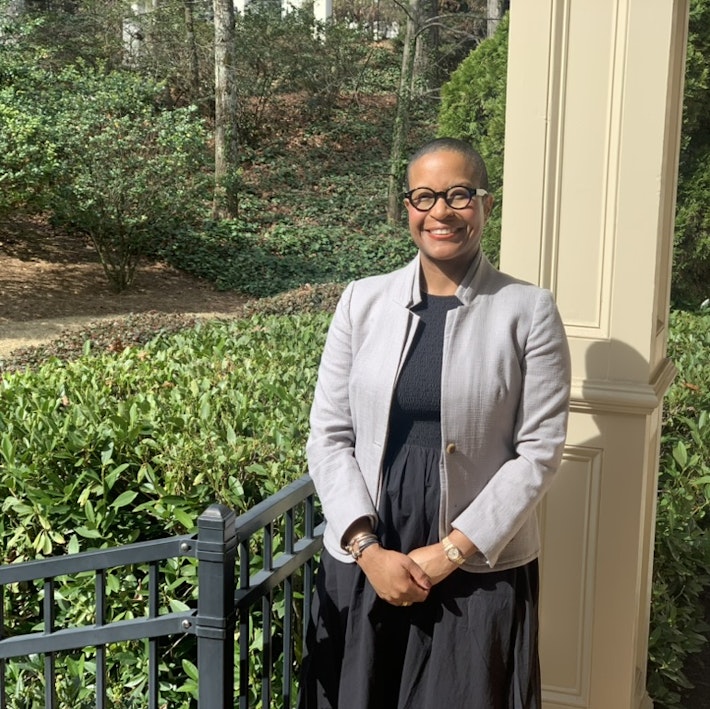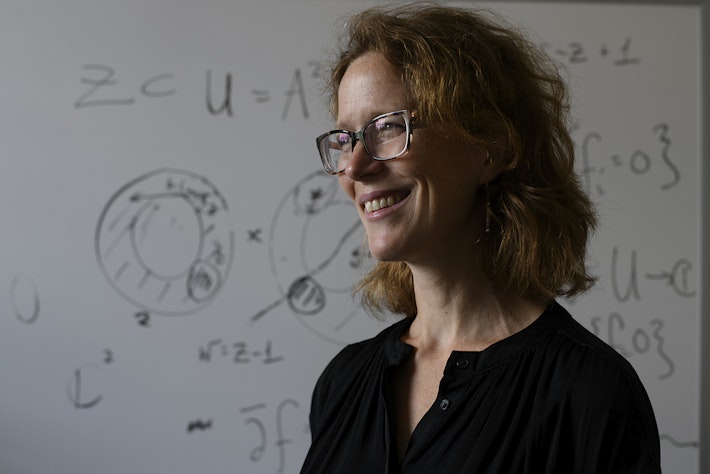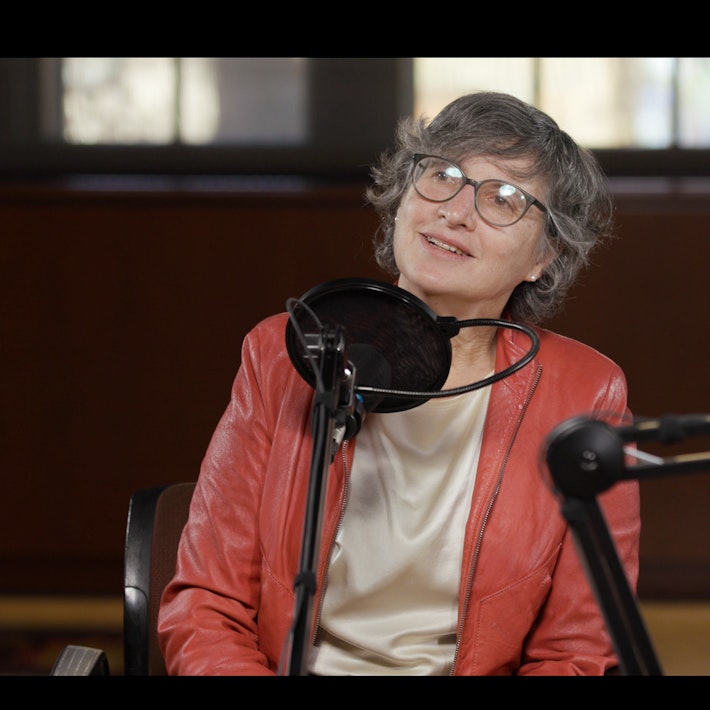Radcliffe Institute Awards 2020 Fay Prize for Outstanding Theses
Alejandro Ruben Quintana, Chinmay Sonawane, and Adele Woodmansee recognized for their exceptional undergraduate work in the classics, integrative biology, and social anthropology, respectively
Today, the Radcliffe Institute for Advanced Study is pleased to announce the recipients of the 2020 Captain Jonathan Fay Prize. In previous years, the prize has been awarded at Radcliffe’s annual Strawberry Tea, which also honors Harvard’s Hoopes Prize winners. This year, with students scattered as a result of the novel coronavirus pandemic, Radcliffe Dean Tomiko Brown-Nagin reached out to each winner to deliver the happy news.
This year’s three Fay Prize recipients were chosen from among 80 Harvard College seniors, each of whom received the Hoopes Prize for their exceptional undergraduate theses. The theses of these three undergraduates, in the opinion of a selection committee made up of senior Harvard faculty members, are the most outstanding imaginative works or pieces of original research in any field. The winning projects are wide-ranging in discipline, including classics, integrative biology, and social anthropology.
Alejandro Ruben Quintana, “Local Migration in the Arsinoite Nome of Egypt during the Early Principate”
Quintana, a classics concentrator, produced a meticulous study of an ancient Egyptian document (P. Tebt. 2.400) held at the University of California, Berkeley, toward a fuller and more complex understanding of ancient migration—a task that required “a sophisticated knowledge of ancient handwriting, the Greek language, bureaucratic abbreviations, and so forth” along with “control of a mass of other papyrus documentation, archaeological evidence, and the suppositions of a shelf-full of German and French ancient historians,” said his co-advisors, Paul J. Kosmin, the John L. Loeb Associate Professor of the Humanities in the Harvard Faculty of Arts and Sciences, and Giovanni Bazzana, a professor of New Testament at Harvard Divinity School. To undertake the research, Quintana self-trained in the field of papyrology, or the study of ancient manuscripts, a discipline that has not been taught at Harvard in five years. “This is the first undergraduate thesis in papyrology I have ever encountered,” said one thesis reader. “I mention that fact at the outset in order to underscore just how unusual is the achievement of the author.” Kosmin and Bazzana concluded of the thesis: “Alejandro’s papyrus edition is accurate, thoughtful, and well-framed by a deep knowledge of Fayum society.”
Chinmay Sonawane, “A Defence of the Queens of Africa: The Public Health and Economic Benefits of Spotted Hyenas (Crocuta crocuta)”
In his thesis, Sonawane, an integrative biology concentrator, quantified the health benefits to humans of sharing the landscape with large wild carnivores, specifically the spotted hyena, in Mekelle, Ethiopia. “A major achievement of this work is in synthesizing disparate data to construct a causal chain, leading from presence of hyenas to provision of health benefits in terms of lives saved,” said one reader. “This entailed field data collection, literature review, agent-based simulation, and disease modeling. Indeed, I think this is a novel set of methods that paves the way for future research.” Sonawane was informally advised by David Haig, the George Putnam Professor of Biology in Harvard’s Department of Organismic and Evolutionary Biology, while Neil Carter, of the University of Michigan’s School for Environment and Sustainability, directed his research. “This undergraduate thesis marks a huge accomplishment that is certain to spur new, exciting developments in the fields of disease ecology and conservation science,” said Carter. Haig noted that Sonawane created his own project, procured funding, established partnerships, and conducted the necessary field activities—sometimes under difficult circumstances, such as when he contracted typhoid. The resulting work secured an exceptional grade from the Undergraduate Committee in Integrative Biology.
Adele Woodmansee, “‘It is Pure Criollo Maize’: Subsistence Agriculture and Ideas of Locality and Contamination in San Miguel del Valle, Oaxaca”
Woodmansee is a joint concentrator in social anthropology and integrative biology who carried out 10 months of ethnographic research in a Zapotec-speaking community in Oaxaca, Mexico, and paired it with genetic research to illuminate indigenous farming practices and migration. “Combining engaged ethnographic research in a Zapotec community in central Oaxaca with a genetic study of maize samples, Adele Woodmansee has written an exceptional thesis that explains how social and cultural value attributed to local agricultural practices enables their survival, even when neoliberal economic policies continue to threaten their existence,” said one reader, while another remarked, “In its conception, scope and execution, it is virtually comparable to a PhD dissertation.” Gary Urton, her advisor and the Dumbarton Oaks Professor of Pre-Columbian Studies in Harvard’s Department of Anthropology, categorized Woodmansee’s thesis as “a real tour de force.” The recent graduate “has an extraordinary potential for doing important work in the areas of food sovereignty and food security globally, in the years to come,” he said.
“The Radcliffe Institute invests in intellectual talent across disciplines and professions, and we are especially pleased to support these promising young scholars, already producing work with far-reaching impact in their fields and in our community,” said Tomiko Brown-Nagin, dean of the Radcliffe Institute, Daniel P.S. Paul Professor of Constitutional Law at Harvard Law School, and a professor in Harvard’s Department of History. “In this year’s Fay Prize cohort, we recognize exceptional students who have shown tremendous initiative, ingenuity, and rigor in their research, the hallmark qualities of our interdisciplinary community.”
The Fay Prize was established in 1907 by Joseph Storey Fay in memory of his great-grandfather, Captain Jonathan Fay (1724–1800), to be awarded to the graduating Radcliffe student most deserving due to academic and personal merit: one whose “scholarship, conduct and character has given evidence of the greatest promise among her contemporaries.” First bestowed in 1909 to Evelyn Spring, Radcliffe College administered the prize for 90 years, and the Radcliffe Institute has continued the tradition since 2001, expanding the candidate pool to Harvard graduating seniors of all genders. The honor reflects the mission of the Radcliffe Institute to foster advanced work across a wide range of disciplines.
About the Radcliffe Institute for Advanced Study at Harvard University
The Radcliffe Institute for Advanced Study is a unique space within Harvard—a school dedicated to creating and sharing transformative ideas across all disciplines. Each year, the Institute hosts leading scholars, scientists, and artists from around the world in its renowned residential fellowship program. Radcliffe fosters innovative research collaborations and offers hundreds of public lectures, exhibitions, performances, conferences, and other events annually. The Institute is home to the Schlesinger Library, the nation’s foremost archive on the history of women, gender, and sexuality. For more information about the people and programs of the Radcliffe Institute, visit www.radcliffe.harvard.edu.







